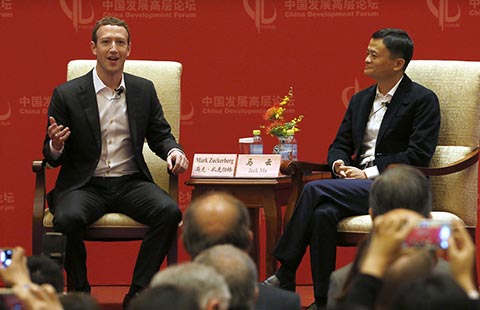CEO survey shows China market second only to US
By Zheng Yangpeng (China Daily) Updated: 2016-03-21 13:38Despite a more gloomy outlook on the world economy, global CEOs still think China is the second most important market after the United States, according to a recent survey by PricewaterhouseCoopers.
Asked which three countries, excluding those that the CEOs were based in, were the most important for their business prospects during the next 12 months, China was identified by 34 percent of CEOs surveyed, coming second only to the US (39 percent) and significantly ahead of Germany (19 percent).
This contrasted with the CEOs' overall pessimism about the global economy. Only 27 percent indicated that they expected global economic growth to improve during the coming 12 months, which was a sharp fall from the 37 percent who expected improvement in 2015. The annual PwC survey quizzed 1,409 CEOs from 83 countries.
"Overregulation" was identified as the top threat to their business prospects (79 percent), followed by geopolitical uncertainties (74 percent) and exchange rate volatility (73 percent).
These issues have been consistently mentioned in surveys in recent years but the level of worry is rising.
Asked what issue most concerned him when he looked at China's 13th Five-Year Plan (2016-20), which has just been released, Dennis Nally, the chairman of PwC, told China Daily he cares about China's shift toward an economy in which market forces play a decisive role.
"The global financial crisis demonstrated how interconnected the global economies really are. In order to be competitive in the global marketplace, you have got to have market forces really driving that. Businesses have to be able to compete for talent, innovate and use technology to create new products and services. More and more of that type of thinking in various industries will be a powerful signal to the international community that China's reforms are moving ahead," he said.
Nally said China's rapid urbanization is creating problems, as well as exciting opportunities. He said jobs, education, infrastructure and healthcare are all things foreign businesses are interested in. But to translate that vision into investment, especially longer-term investment, requires the government to provide clarity and consistency of rules and law enforcement.
"What are businesses most concerned about? They want clarity of policies and rule-making. They want consistency of laws. If I make an investment today, will that investment be protected five and 10 years from now? So, the government has an important role to play in providing that type of assurance."
Another role government can play, he said, is in building up infrastructure. But he said the whole weight of that should not rest with the government because infrastructure investment requires public and private partnerships.
- Execs see myriad growth opportunities
- Wasteful spending curtailed
- Coal producer seeking cleaner alternatives
- Standard Chartered banking on China's prospects for own turnaround
- Finance minister rules out separate carbon tax
- Private brands contribute half of China's total brand value
- Bosch connects into evolving user demand
- Tech moguls predict further advances in AI
















